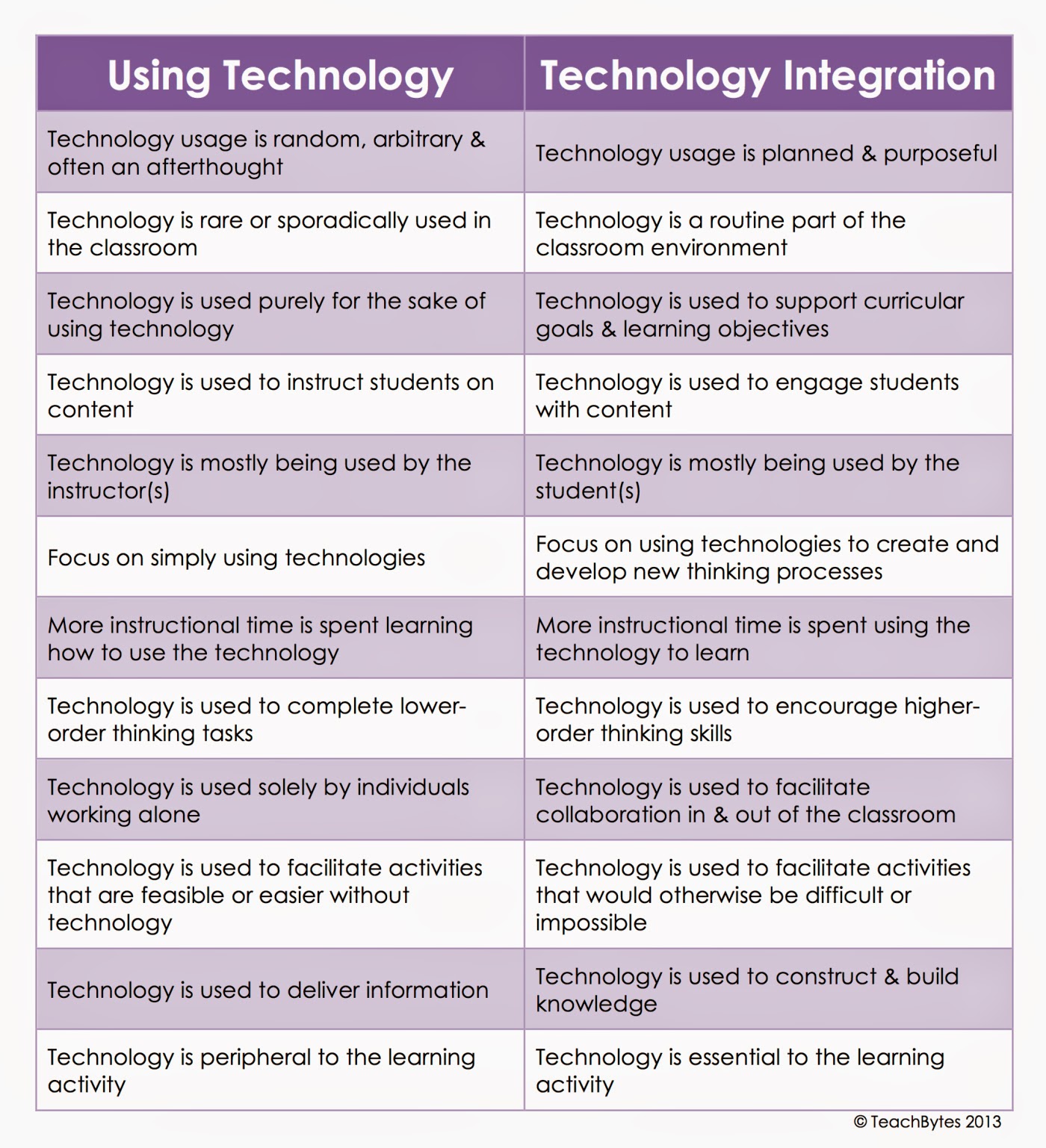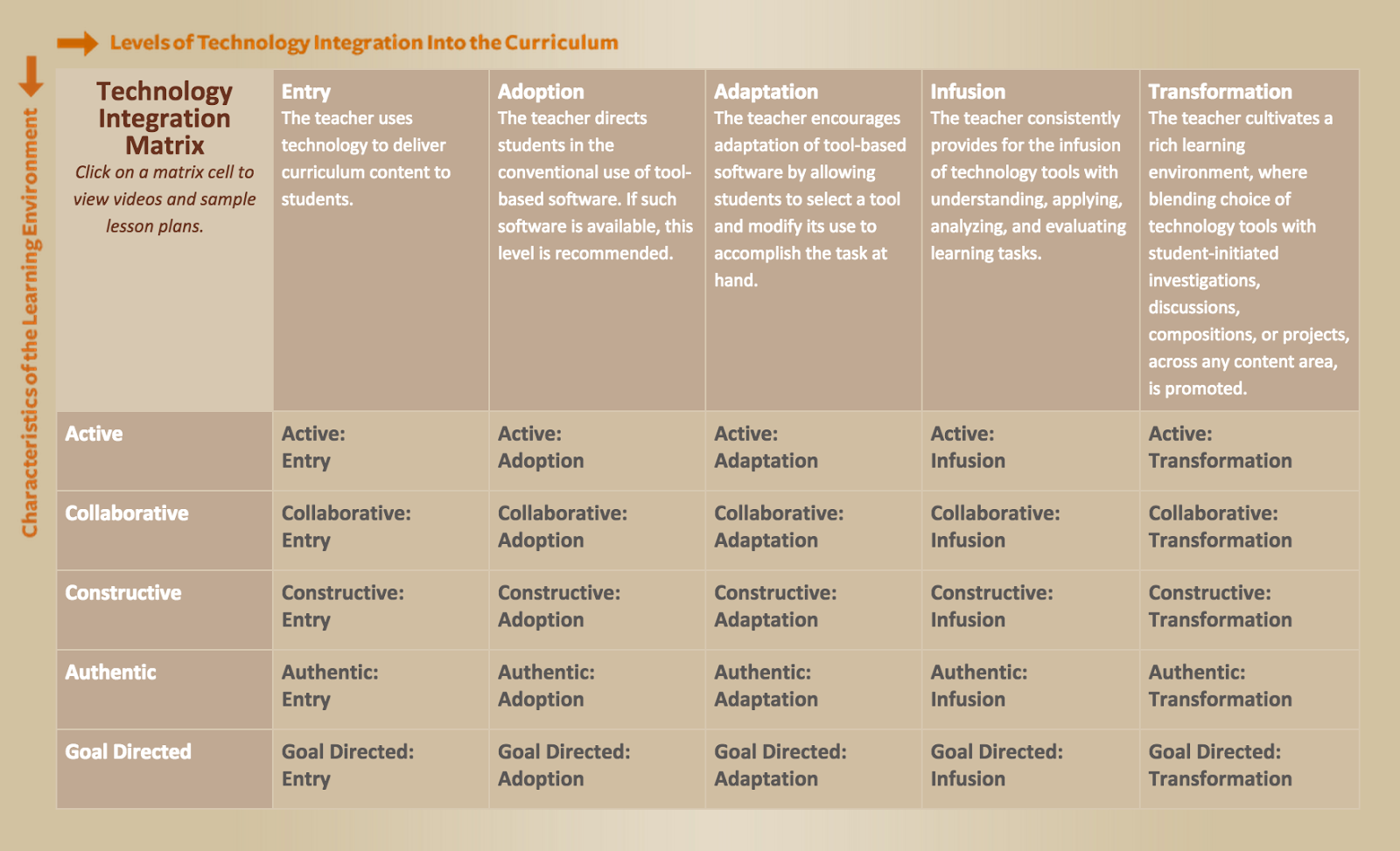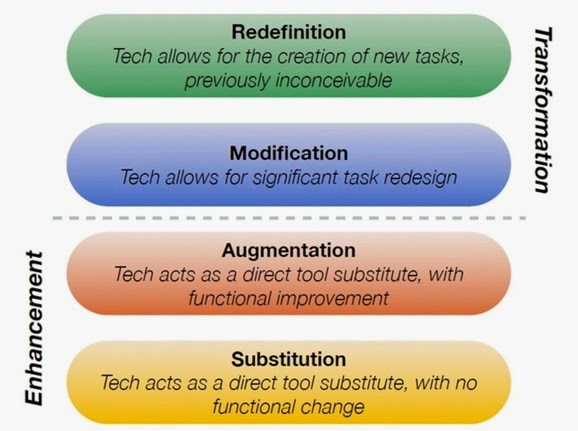One of the toughest parts about leading educators toward using technology to engage learning is getting past talking about using technology for the sake of using technology to using technology to engage learning.
 |
| Click the table to enlarge it to read it. |
I was intrigued when I found the table below on Clif Mims’ paper.li publication, Clif’s Notes on #Edtech. (It was actually created by ADITI RAO and published on Teachbytes.com) The beauty of using the table below, is that it provides a vocabulary that we can use when we discuss how to use technology with our colleagues.
Where does your curriculum lie in this table?
Technology Integration Matrix
There are other important tools that provide vocabulary for using technology to engage learning. There is the Technology Integration Matrix (TIM) which provides a system of 25 cells that have 5 columns headed with terms identifying the Levels of Tech Integration (complexity of technology use/level of student centricity) across the top and down the left side are 5 Characteristics of a Learning Environment. The beauty of this matrix is that provides a system that you can use to identify where you are in a lesson/activity you are teaching and then suggestions for how you can increase your level of Technology Integration. Both the Original Florida version and the Arizona versions have videos and lesson plans for creating these learning environments. I have included a more complete description of these tools in another posting, Building Learning Through Technology. Based upon the TIM matrix, I would say that most of the previous chart’s activities in the left column involve Entry and Adoption while the right column describes Adaption, Infusion and Transformation. What do you think?
 |
| Click the table to enlarge it to read it. |
SAMR (Substitution-Augmentation-Modification-Redefinition)
You may not have heard about the TIM, but you have been using SAMR in your schools. This is another ?? for defining Technology Integration. Developed by Ruben R. Puentedura, Ph.D. to describe a ladder of implementation, this four-stage hierarchy considers the bottom two levels to be forms of Enhancement and the top two levels in the class of Transformation. While the students’ role in the learning process is implied in the SAMR, I must admit that I like the TIM better because it specifically defines the changing roles of the students in the pedagogical process.
JUST IN: As I was writing this, I discovered another relevant graphic on FaceBook (yes, sometimes I veer off into FaceBook when I am looking for inspiration 😉 This is another graphic that fits the role of identifying how we want students to use technology. In this case, I would say that the Wrong column includes Adoption and Adaptation in the TIM matrix and the Right answers may fit in the Infusion and Transformation columns with some of them not even fitting on the matrix but including things that we want to see in education, (i.e., Start Conversations.) What do you think?
The final quote, “Technology is a Tool, NOT a Learning Outcome,” encapsulates this whole posting. Technology is not an end unto itself – it is a means to an end that will hopefully lead to empowered and active learners.
BTW, This graphic is created by Bill Ferriter who writes a blog entitled The Tempered Radical. I am glad that I found this blog because it appears that Bill is an aware teacher who is interested in sharing what he sees and providing interested insight into how schools work and how they can be improved. One of the things that I noticed throughout his blog is that Bill appears to be creating his graphics (like the one below) by drawing it on paper and then scanning it. That is artistic and is not something that we see too much anymore.
So what do you think?
Is this something that you can use when you are working with your teachers, administrators and students? What do you see as you look around your curriculum? Where does it fit on the TIM or SAMR?
What can you do to “Take it Up a Notch?”
Z
What’s YOUR opinion?
Leave a comment and keep the discussion going.
Leave a comment and keep the discussion going.

